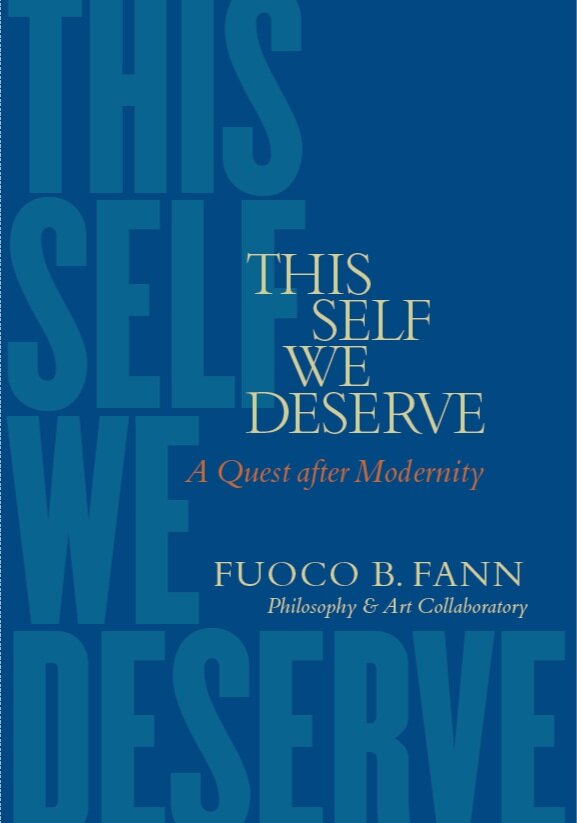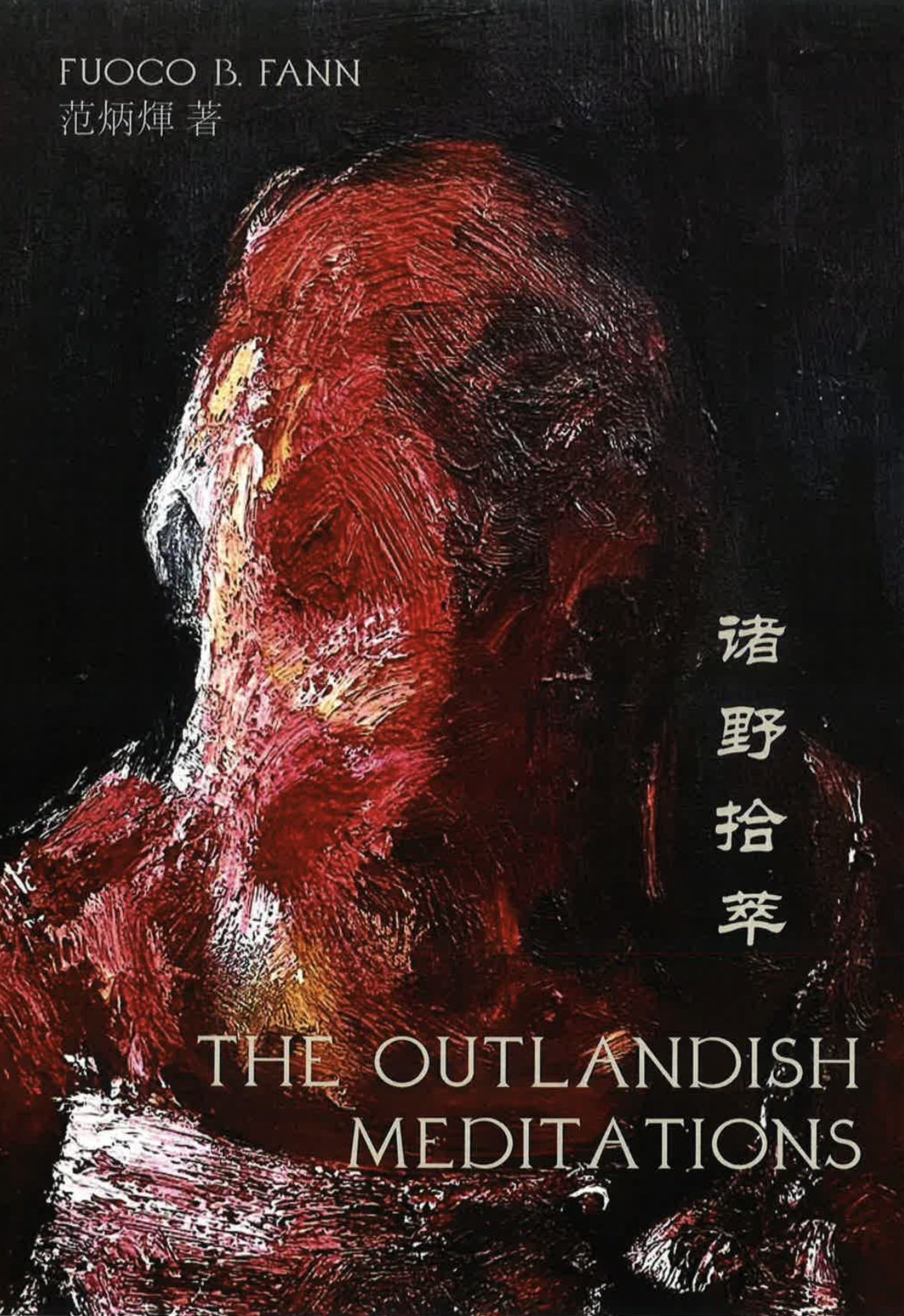PUBLICATIONS
In This Self We Deserve: A Quest after Modernity, cultural critic Fuoco B. Fann offers a fresh examination of how we structure our understanding of our selves as the modern subject. Derived from the ontological nature of modern phonetic language, this subject faces a great deal of confusion since the status of the modern language and knowledge is problematic and precarious. In the unfolding of thinkers such as Michel Foucault, Jacques Derrida, Jean-François Lyotard, and Jean Baudrillard, Fann broadens the questions of reason going beyond the limits of what is given in the experience in Western philosophy since Kant. He expands on Foucault's discussion of the "doubling" of phonetic language and Derrida's critique of "logocentrism," in contrast with non-phonetic language, to reflect how modern phonetic language signifies knowledge and forms the self in post-aesthetics, post-consumption, and everyday life. Based on a series of lectures given at the Philosophy & Art Collaboratory, this book provides an insightful and innovative understanding of our contemporary thought and modern life.
I hear myself when I speak; therefore, I make a representation of the world when I speak, live, and labor. I hear the inner narrative of self regardless of whether I speak or not; therefore, I experience the endless murmuring stream of consciousness.
We have only a little idea about what kind of self we deserve. The little answer is simple: it is all about the awareness of the self—the modern or the postmodern, whicever suits your feeling at the moment—the same awareness of the self that mankind has gazed upon from the beginning.
Thesis 11 Book Review
While the humanities face various impasses and while any of us may sense that our “time is out of joint,” seldom does a book emerge that traces the path of the vanquished leading to our present. Fuoco B. Fann’s This Self We Deserve: A Quest After Modernity offers an illuminating inquiry into modern knowledge, language, and the subject, drawing from French poststructuralism, continental and intercultural philosophies, and art theory.
The Outlandish Meditations is a selection of sophisticated and challenging essays in Chinese. The first essay depicts Fuoco B. Fann’s unique childhood with his grandparents in a Ming royal descendent-literati home in 1960s China. To examine the conditions of individuality, the second essay weaves through unusually combined anecdotes of Michel Foucault, Jean Baudrillard, and the eminent Chinese art critic Shui Tianzhong as well as Fann’s experience in China’s “1980s Enlightenment”. The third essay posits a fundamentally original theory about the ending of the Chinese literati tradition along with the transformation of the universal intellectual into the techno-savant of today. The fourth essay points out the essential philosophical orientation of current Sinology and Chinese Studies: the Hegelian “immobile empire” of China and the modern view that “the Chinese empire, including its artistic and religious versions, was based on an imaginary realm created with texts.” The final essays take up the precarious nature of modern language and knowledge, in the unfolding of Jacques Derrida, Foucault, and Baudrillard. With lucidity and candidness, Fann articulates the often obscure issues of post-thoughts, post-aesthetics, and post-consumption.
《诸野拾萃》是一部深邃而富有挑战性的论文选集。作者在首篇中,记述了20 世纪 60 年代生活在大陆一个明室后裔文人家庭中,如何与祖父祖母度过童年的独特经历。二篇将米歇尔·福柯、让·鲍德里亚,以及大陆著名艺术评论家水天中的轶事,与作者在中国“20世纪80年代启蒙运动”中的经历交织在一起,审视人的个性境况。三篇提出一个根本性的原创理论,中国文人传统终结,以及现代普世知识分子向技术专家的转变。四篇指出当今“汉学”和“中国研究”的基本哲学取向,即黑格尔式的“中华停滞帝国”,和“中华帝国包括它的艺术和宗教文本,都是建立在一个用文本创造出来的想像王国基础上”的西方现代理论。余篇探讨现代知识与语言的不稳定本质,在展开对福柯、雅克·德里达和鲍德里亚的思想的论述中,作者以清晰准确、忠实坦率的文笔,阐明了后思想、后美学和后消费这些通常晦涩难懂的问题。



